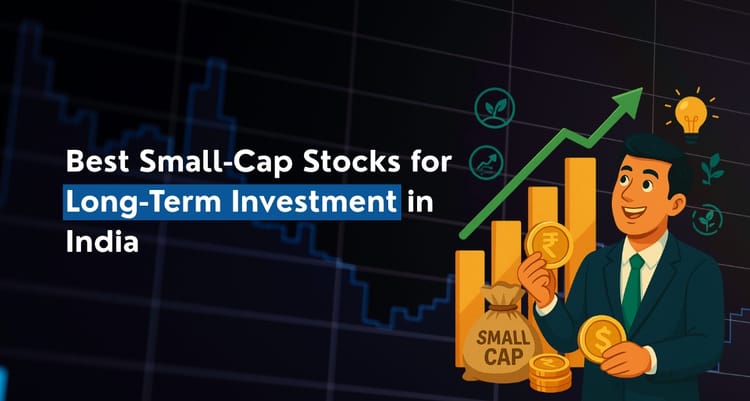Don’t Ignore Boring Companies – They Might Be the Next Big Thing

When you think of stock market success stories, your mind probably races to flashy tech startups, unicorn IPOs, or the next big disruption. But here’s a quiet truth smart investors have always known:
“Sometimes, the most boring businesses can yield the most exciting returns.”
Let’s break down why boring companies are often hiding in plain sight — quietly compounding wealth while the market chases trends.
What Are “Boring Companies”?
They’re the kind of businesses people overlook:
- Companies that make cement, paint, cables, or pipes
- Insurance providers or utility suppliers
- Consumer staples like shaving cream, detergent, or packaging
- Companies with little media buzz but strong market presence
They’re not glamorous, but they do something very important — they solve everyday problems and generate consistent cash flow.
Why You Shouldn’t Ignore Them
1. Steady Demand = Steady Growth
These companies often serve non-cyclical needs. Whether the market is up or down, people still need to brush their teeth, switch on the lights, or buy insurance.
A company selling packaging materials or adhesives may not trend on Twitter, but it’s likely billing millions monthly — silently.
2. Strong Fundamentals, Low Hype
Since these companies aren’t hyped, they’re usually undervalued or fairly priced, with strong fundamentals like:
- Healthy cash flows
- Good return on equity (RoE)
- Minimal debt
- Strong promoter holding
These metrics matter more than media attention.
3. High Entry Barriers
Think logistics or chemicals — they may be capital-intensive or require years of operational expertise. This keeps competitors out and profits in.
For example, a boring logistics company may have deep infrastructure and nationwide contracts, making it hard for startups to replicate.
4. Compounders in Disguise
Many so-called “boring businesses” have been compounding machines for decades.
Examples from India:
- Asian Paints – Paints. That’s it. But a legendary compounder.
- Pidilite – Fevicol. Sounds dull, right? Yet a household monopoly.
- HDFC Life, LIC – Insurance might feel dry, but the returns are anything but.
- Cera Sanitaryware – Washroom fittings turned into multi-bagger returns.
- ITC – Say what you want, but it’s a giant in FMCG and hotels.
How to Identify the Right “Boring” Stocks
Look for:
✅ Consistent revenue growth
✅ Dominant market share in a niche
✅ Strong promoter background & governance
✅ Reasonable valuations
✅ Sustainable demand & repeat purchase nature
Also, check if the company has scalability or export potential — many such businesses quietly expand abroad while staying under the radar.
Why Most Investors Miss Out
- Too focused on trends: Everyone wants the next Tesla.
- Impatience: These companies grow slowly but steadily — they’re not for traders.
- Lack of glam appeal: No buzz means no FOMO — which ironically is good for returns!
The Investor Mindset You Need
“Be fearful when others are greedy and greedy when others are fearful.” – Warren Buffett
But also — be curious when others are disinterested.
If you can see beyond the surface and focus on long-term value, you’ll realize that the most unassuming stocks often deliver the most surprising wealth.
The market is like a noisy classroom — everyone pays attention to the loudest kid. But sometimes, it’s the quiet one in the corner who tops the exams.
So the next time you hear about a company making adhesives, wires, or insurance policies — don’t yawn. Research it. You might just discover the next big thing.
Ready to find underrated gems for your portfolio?
Join us at Fynocrat and let our research help you grow with clarity, conviction, and calm.
Frequently Asked Questions (FAQ)
What exactly is a “boring” company in the stock market?
A boring company refers to a business that operates in traditional, non-glamorous sectors like cement, utilities, insurance, packaging, or consumer staples. These companies usually have low media buzz but generate consistent revenues and profits over the long term.
Are boring companies good for short-term trading?
Not really. These businesses usually don’t experience sudden price spikes like volatile tech or penny stocks. They’re better suited for long-term investing and wealth building through compounding.
Can boring companies give multi-bagger returns?
Yes, absolutely! Many boring businesses like Asian Paints, Pidilite, ITC, HDFC Life have become multi-baggers over the years due to consistent growth, scalability, and dominant market share.
Why are boring companies less talked about?
Because they aren’t in trending or disruptive industries. They don’t make headlines often, but they silently perform well in the background — which can be a good thing for value investors.
What should I look for before investing in such companies?
Key things to check:
- Strong and consistent earnings
- High RoE (Return on Equity)
- Low debt levels
- Scalable business model
- Honest and experienced promoters
- Dominance in their niche
How long should I hold boring stocks?
Ideally, 5–10 years or more. The real power of boring companies is in their steady compounding over time. If fundamentals remain intact, these stocks can outperform flashier peers in the long run.
Is it okay to mix boring and high-growth stocks?
Yes! In fact, a balanced portfolio often includes a mix of:
- High-growth/high-risk stocks
- Defensive/stable (boring) stocks
This gives you both upside potential and downside protection.
Disclaimer: We are SEBI Registered Research Analyst, and our views shared in this blog are for informational purposes only. The opinions expressed on individual stocks are based on publicly available data and should not be construed as a recommendation to buy, sell, or hold any security. Investors are advised to conduct their own research and consult with a qualified financial advisor before making any investment decisions.






Member discussion